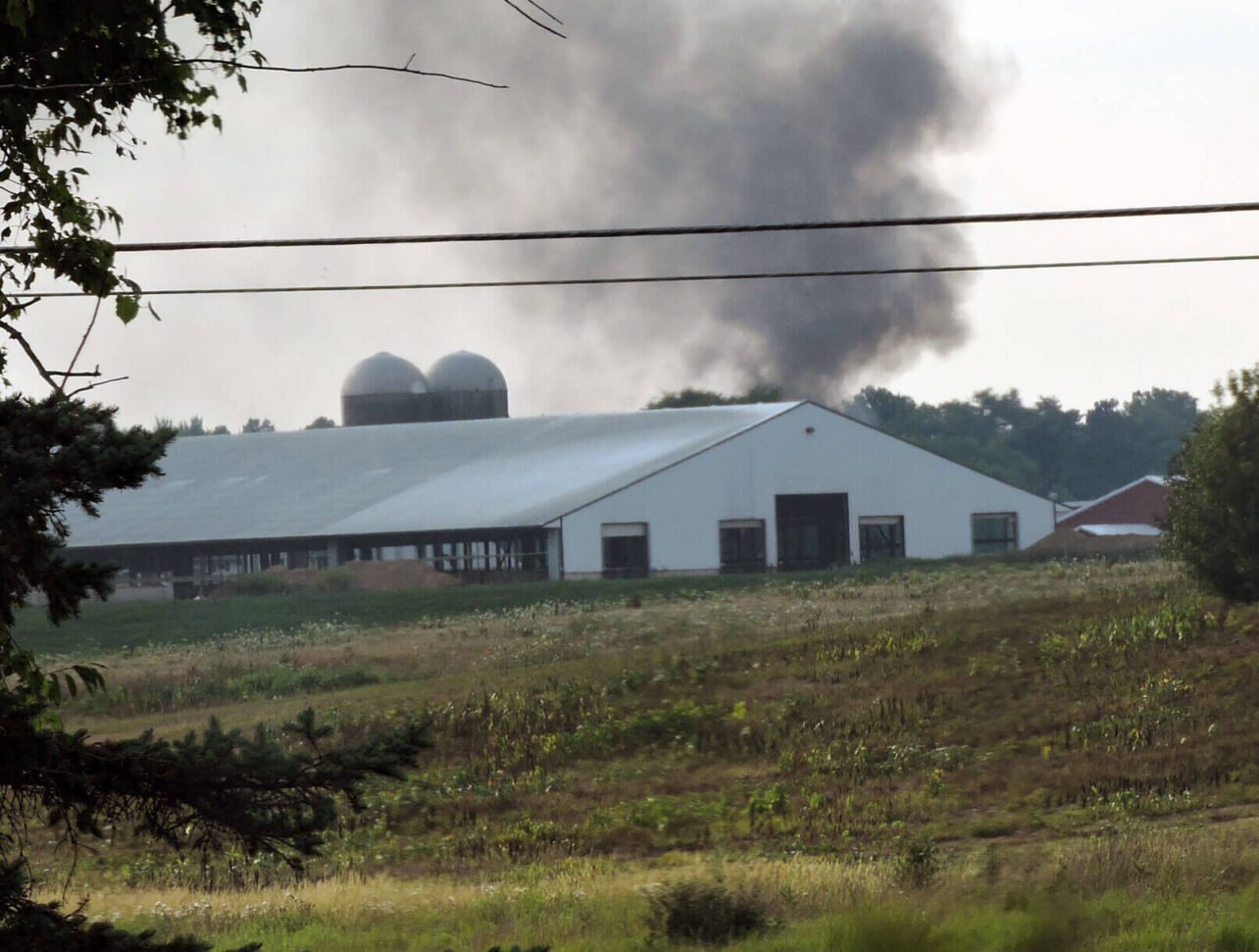Share
Wisconsin industrial dairies with documented regulatory compliance problems benefit from California greenhouse gas cap-and-trade program
FOR IMMEDIATE RELEASE
Contact:
Sherri Dugger
Executive Director
Socially Responsible Agriculture Project
(317) 371-2970 sherrid@sraproject.org
August 2020
Trading Pollution: Wisconsin industrial dairies with documented regulatory compliance problems benefit from California greenhouse gas cap-and-trade program
Golden, CO – Recent research by the Socially Responsible Agriculture Project shows that Wisconsin-based concentrated animal feeding operations (CAFOs) that receive large amounts of public dollars for manure-to-energy digesters are benefiting from California’s greenhouse gas cap-and-trade program, despite these operations having numerous environmental and other regulatory compliance issues. SRAP, in partnership with Kewaunee C.A.R.E.S., a Wisconsin-based working committee, has been studying the negative impacts of Wisconsin-based CAFOs for years. In 2015, along with a coalition of other local, state, and national organizations, SRAP called for regulatory reforms to deal with the increasing industrial dairy pollution crisis and its harm to residents of Kewaunee County, Wisconsin and issued a report called The RAP SHEETS: Industrial Dairies in Kewaunee County, Wisconsin. That report presented results of an in-depth review of government documents exposing negligent management of Wisconsin industrial dairy CAFOs and the lack of oversight and enforcement by the Wisconsin Department of Natural Resources (WDNR).
One Kewaunee County industrial dairy profiled, Deer Run Dairy LLC, was recently featured in an article about EPA Administrator Andrew Wheeler’s visit to the operation. Deer Run Dairy LLC is one of the Wisconsin-based CAFOs benefitting from the California cap-and-trade program, despite the operation’s regulatory compliance violations, which include more than 2,600 gallons of manure being spilled.
Despite the release of the RAP SHEETS report and the ever-growing awareness of the hazards of dairy CAFO production, little has changed in Kewaunee County, where groundwater and drinking water contamination is still prevalent. Government regulatory oversight over CAFOs continues to lapse, while environmental and public health problems remain unaddressed. Meanwhile, manure-to-energy projects are growing in number and magnitude with the help of government programs that funnel money to this problematic industry.
SRAP’s recent research of the California cap-and-trade program shows:
- There are currently 15 Wisconsin facilities that benefit from the California cap-and-trade program. Ten of these, which have experienced numerous manure spills, are built over or near waterways;
- There have been 1,308,721 CA-ARB credits issued to these Wisconsin facilities from 2013-2020;
- Since 2001, there have been 526,960 gallons of manure spilled in Wisconsin and 104 violations and/or discharges from 2004-2019, of which 96 occurred while the operations were receiving carbon credits;
- Dairy herd expansions in Wisconsin at the 15 facilities have increased production of over 15,000 animals since the facilities registered for California carbon credits. Another four facilities are proposing to expand with an additional 2,700 animals. Expansion of these operations contributes to the production of more animal waste and, therefore, more potential for environmental pollution, and;
- There is a lack of accountability in the administration of public and private programs that pay for manure-to-energy projects
Because manure digesters are expensive to build, operate, and maintain, CAFO owners pay for them with grants and cost-share agreements from states, federal programs, and utility companies, with the money ultimately coming from the public. So the public is paying the bills for the digesters; however, the CAFO industry keeps all the profits by offsetting operation costs, selling the energy to utility companies and selling their claimed air pollution reductions to other polluters.
Without outside funding from a California ARB-approved designee or operator, most farms find digesters unaffordable. California has spent nearly $200 million of its ambitious California Climate Investments fund on 100 digester projects, instead of putting those funds toward California’s Smart Agriculture Programs. The California fund is supposed to be “improving public health, quality of life and economic opportunity in California’s most burdened communities at the same time they’re reducing pollution that causes climate change,” but this isn’t happening. Thus, manure-to-energy projects only serve as a facade to further a failed industrial agricultural system that benefits the few at the expense of the public and the environment.
Ways to Get More Information:
1) See a summary of SRAP’s research findings (CAP-AND-TRADE PROGRAM SUMMARY)
2) Contact Sherri Dugger, Executive Director of Socially Responsible Agriculture Project at (317) 371-2970 or Lynn Utesch of Kewaunee C.A.R.E.S. at (920) 388-0868.
About Socially Responsible Agriculture Project (SRAP):
SRAP informs and educates the general public about the negative effects of concentrated animal feeding operations (CAFOs)—also known as factory farms—while working directly with U.S. communities impacted by this destructive form of industrial animal agriculture. Through public education, issue advocacy and local community organizing, SRAP empowers rural residents to protect their public health, environmental quality, natural resources and local economies from the damaging impacts of factory farms.
About Kewaunee C.A.R.E.S:
Kewaunee C.A.R.E.S. advocates for stewardship of the land, air and water to provide a thriving environment, economy and community in Kewaunee County, Wisconsin.

